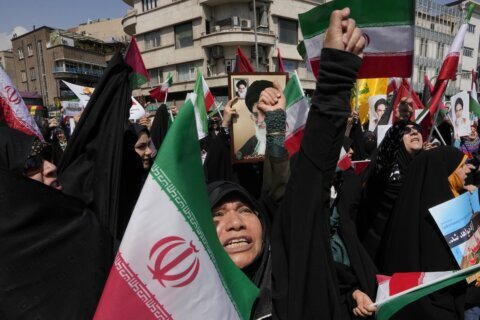BUDAPEST, Hungary (AP) — Hungary has asked the European Union’s executive to open a legal procedure against Bulgaria over a tax it recently imposed on Russian natural gas passing through its territory, a government minister said on Friday.
Bulgaria believes the tax, which it levied in October, will reduce the privileged position of Russia’s state-owned energy company Gazprom in southeastern Europe and deter Russian influence in the region.
But the tax has angered Bulgaria’s neighbor Serbia, as well as fellow EU member Hungary, which are heavily dependent on Russian gas coming mostly via Turkey and Bulgaria through the TurkStream pipeline.
In a Facebook video, Hungary’s minister for EU affairs, Janos Boka, said he had sent a letter to the European Commission urging it to launch an infringement procedure against Bulgaria, the first potential step the bloc can use to ensure its laws are upheld by member states.
Boka complained that Bulgaria had imposed the tax without consulting first with Hungary, and that he believed the measure was in violation of the EU’s laws on customs and trade.
“The Bulgarian energy fee gravely endangers the energy security of Hungary and the entire region,” Boka said, adding that Hungary was prepared to take the matter before the EU’s highest court before the end of the year if an infringement procedure is not launched.
Most countries in Europe have largely weaned themselves off of Russian gas since Moscow launched its invasion of Ukraine in February 2022. But Hungary has lobbied heavily in Moscow to secure more favorable gas deals in the 21 months since the war began.
Bulgaria was cut off from Gazprom shipments soon after the Russian invasion of Ukraine, but it allowed the use of the TurkStream pipeline that passes through its territory to supply Serbia and Hungary, two of the most pro-Russian governments in Europe.
The tax, which imposes a fee of 10 euros (dollars) per megawatt-hour on Russian gas transfers, was discussed by the EU in October, but no decision was reached on whether it was appropriate.
Bulgaria’s government has said it does not expect the tax to result in higher prices for Hungary and Serbia, but smaller profits for Gazprom.
Copyright © 2024 The Associated Press. All rights reserved. This material may not be published, broadcast, written or redistributed.







